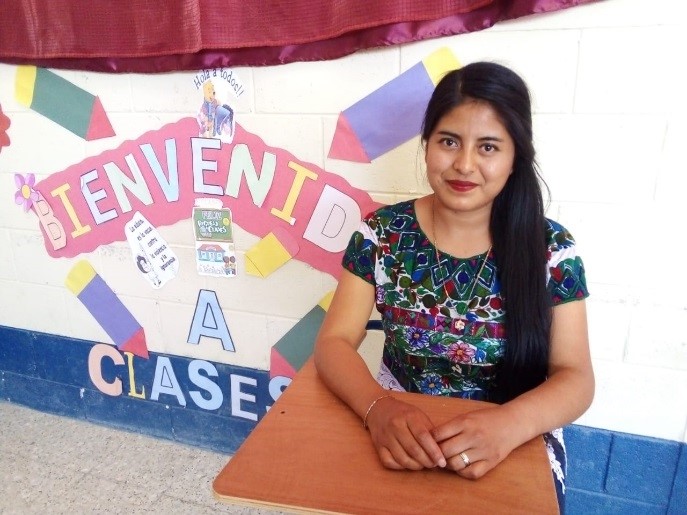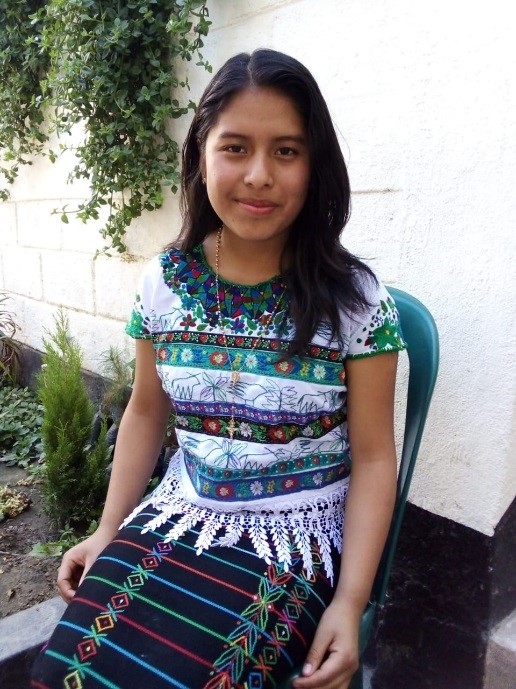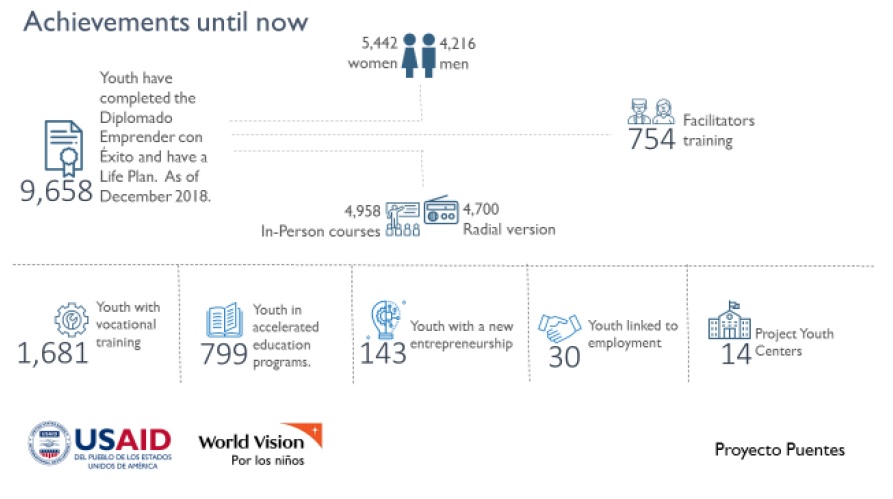Supporting mother language learning and life skills in Guatemala
By Claudia Alejandra Hurtarte Naz
USAID and World Vision, together with partner organisations, are implementing the Puentes Project in the to improve young people’s (15 – 24 year olds) skills and abilities, prepare them for work, and increase access to employment and entrepreneurship opportunities. This five-year project has been operating since April 2017 in the Western Highlands of Guatemala. As of December 2018, 9,658 youth have completed the programme.
Let’s meet two participants in the Puentes Project to learn why they feel it’s important to learn in their mother language, Chalchiteko.
Meet Martha
Martha is in the ninth grade. At school she enjoys writing, drama and dance. Her favourite course is home education because she enjoys learning how to cook new recipes.
World Vision: What language do you use at home?
Martha: At home we speak our mother tongue Chalchiteko.
World Vision: What languages have been used by your teachers in the classroom?
Martha: Sometimes I have spoken in Chalchiteko with one of my teachers, but most of the time in Spanish.
World Vision: Why do you think it is important for you and other indigenous children to be able to learn in your own language at school?
Martha: Because I do not want my language to disappear and I would like to learn to write it and read it to teach others in the future.
World Vision: Why is it important for you to stay in school?
Martha: To have a good future and to be able to get a job to give my family a better life.
World Vision: What do you dream of doing with your education?
Martha: I would like to be an auxiliary nurse because I want to help people who need it and I also want to be a stylist, for this I must make an effort and continue studying.
Meet Ana
Ana enjoys spending time with her friends and learning new things. She likes to express her ideas and finds freedom in being herself. Ana is in the seventh grade.
World Vision: What language do you use at home?
Ana: With all my family I speak in the Chalchiteko language every day.
World Vision: What languages have been used by your teachers?
Ana: Spanish, because the teacher does not master the language that I speak, only with my fellow students do I communicate in Chalchiteko language.
World Vision: Why do you think it is important for you and other indigenous children to be able to learn in your own language at school?
Ana: It is important that our language be reinforced so that it does not get lost, and I would also love to learn to read it and write it to give greater value to my culture.
World Vision: Why is it important for you to stay in school?
Ana: To be able to improve myself and have more opportunities for development and because in the future it will help me to get a stable job to support my family.
World Vision: What do you dream of doing with your education?
Ana: In the future I want to complete a career in business administration and be able to work in a bank.
Learn more about the importance of mother language learning.
Results from the Puentes Project (as of December 2018)
Read more:


